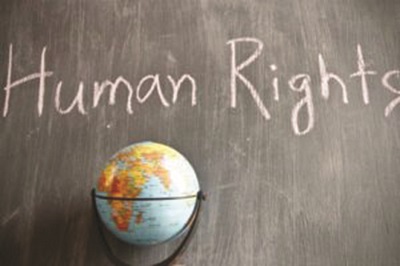Deadline: 17-May-24
The World Forum for Democracy calls for expressions of interest from innovative initiatives, from all over the world, aiming at enhancing democracy and contributing to sustainable peace.
The strength of democracy lies in its ability to embrace and balance differences to serve society as a whole. Diversity is a source of resilience, adaptability and creativity. But it can also be exploited for political gain by polarising opinion and deepening divides. Socio-economic, gender, ethnic and other inequalities fuel divisive rhetoric and trigger electoral choices which make democracies increasingly fragile. In a year during which around one half of the world’s population has been called to the polls , the 2024 edition of the World Forum for Democracy will address the critical threats posed by disinformation and divisive political narratives around diversity, including in the context of election campaigns. The Forum will focus on how electoral processes inadvertently crystallise societal divides and provide fertile ground for populism to flourish. In light of the urgency of this challenge, the Forum will explore ways of raising understanding among citizens of the risks posed by populism for their fundamental rights and freedoms.
To achieve this, the Forum will feature inspirational talks by thought leaders. Analytical labs will challenge proposed new solutions and identify ideas worth spreading. Moreover, the Forum will actively foster the creation of networks and communities of practice, serving as incubators for turning ideas into action.
The main axes for the 2024 edition will be:
- Elections and value divides: Elections are pivotal moments in democratic life, yet they have become flashpoints where deep-seated value divides are exacerbated. The Forum will offer a deep dive into the potential of inclusive electoral practices and new ideas to overcome binary thinking and foster unity within diverse societies.
- Unraveling the web of disinformation: Disinformation, particularly online, is a powerful tool to manipulate public opinion, sow discord, and erode trust in democratic institutions. The Forum will analyse the mechanics of disinformation campaigns, their impact on democratic processes, and explore innovative strategies to counteract this threat.
- Citizen engagement for democratic renewal: Many democracies are facing a crisis of civic engagement. Civil society’s role in fostering civic engagement and promoting social capital is instrumental in shaping democratic outcomes. The Forum will assess the extent to which democratic institutions reflect a changing demos and whether population diversity is adequately represented in public life, culture, sports and other areas of democratic life. It will look into new forms of citizens’ engagement and decision-making which can help create spaces for constructive dialogue, foster understanding, and build consensus on policy solutions that transcend narrow interest and deliver the common good.
Initiatives for example, but not limited to:
- Initiatives working towards depolarising elections, promoting non-divisive campaigning and different forms of collaborative democracy;
- Actions promoting unifying leadership and reconciliation in polarised societies;
- Alternative methods of making policy decisions, including, but not limited to, sortition, deliberative democracy, citizen panels, etc.
- Organised efforts to effectively keep social media companies and online platforms accountable for the content or polarising impact of their algorithms;
- Mechanisms for improving resilience to disinformation campaigns and manipulation, including tools to remove fake accounts from online platforms;
- Initiatives fighting corruption and “revolving door” policy, limiting the number of terms in office, or advocating the deprofessionalisation of politics;
- Platforms for candidate voting;
- Innovative methods for fostering and sustaining meaningful civic engagement in politics (including that of young people, women or minorities);
- New approaches to empowering the underprivileged or underrepresented groups and increase their political mobilisation;
- Innovative approaches to making the political parties and coalitions, especially those in opposition, more able to act as a critical, yet constructive counterpower;
- Initiatives to avoid concentration of media ownership and sustainable business models for media
- Solutions which aim at detecting and countering AI-generated fakes and for keeping the AI-tools in check;
- AI supported political decision-making and AI tools for deliberative democracy;
- New strategies to deconstruct the mechanics of disinformation campaigns and manipulations of public opinion, including citizen education for enhanced disinformation awareness;
- Innovative approaches to diversity management, social inclusion, and integration, including, but not limited to, reconciliation and trust-building processes, overcoming segregation, building social cohesion and intercultural exchange;
- Cross-border and international partnerships in achieving more inclusive societies.
Who can apply?
Any public or private organisation is eligible to apply. One presenter for the selected initiatives will be invited to Strasbourg to take part in the World Forum. Travel and accommodation expenses will be covered by the Council of Europe if required.
For more information, visit World Forum for Democracy.


